What does a second city say about a nation?
The string of crises hitting Birmingham tells us a lot about the country we're living in
The bottom of Alfred Road stinks. Connecting to Stratford Road, which leads into the city centre, this street in the southeast Birmingham community of Sparkhill has been stacked with rubbish for weeks due to the city's bin workers striking over pay cuts. Austerity and poor financial decision-making have bankrupted the council, and people across Birmingham are footing the bill.
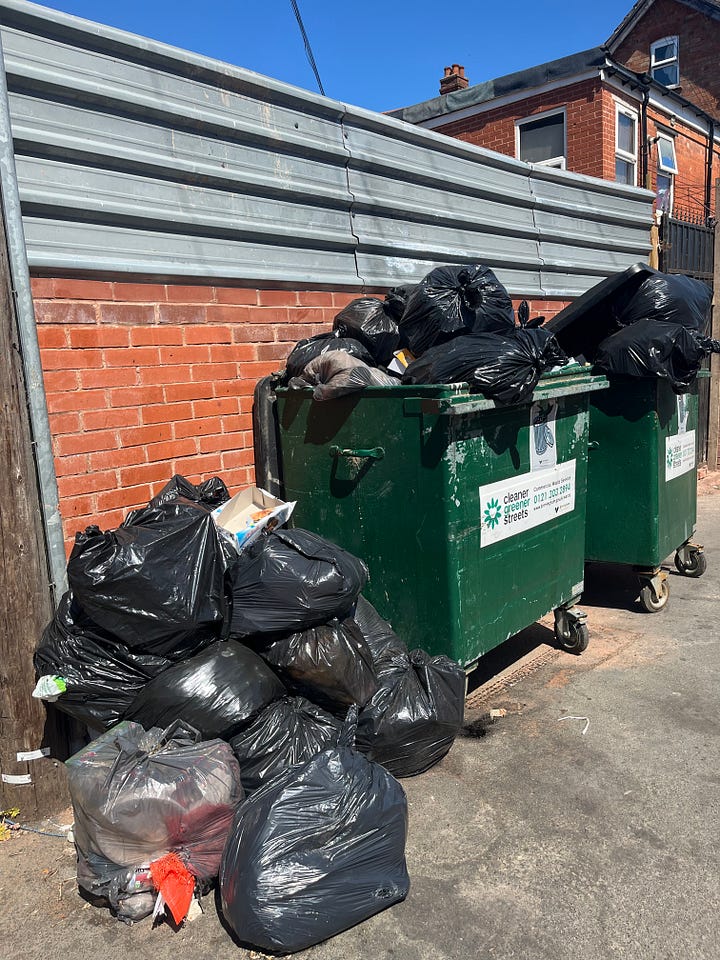
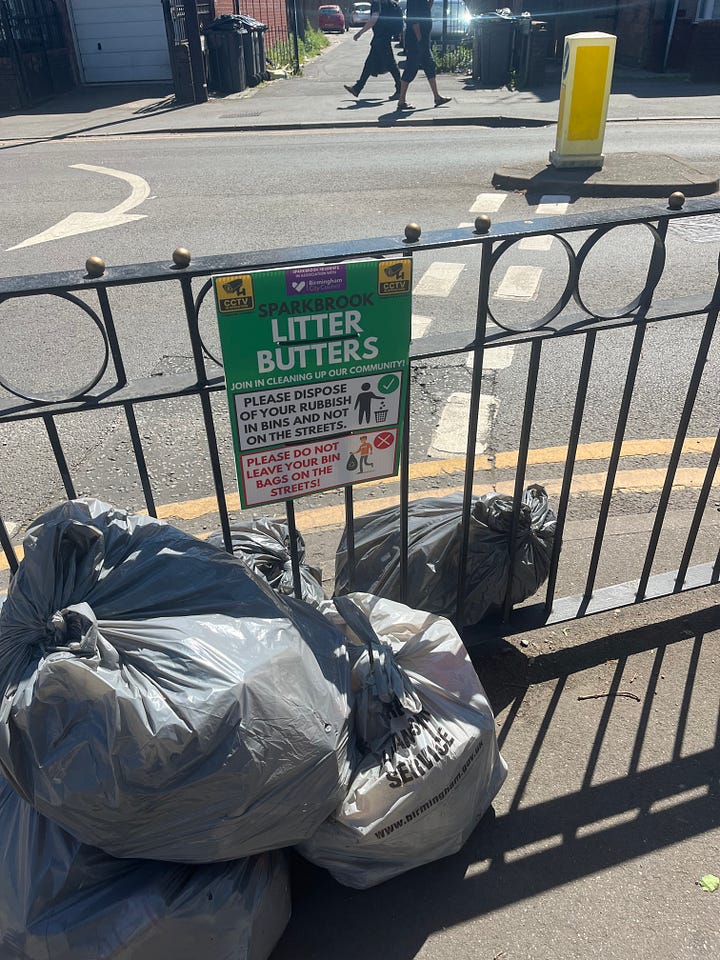
Reporting on the bins crisis recently for The Lead UK, I spoke to several people who noted that the worst-hit parts of Birmingham have been lower-income, majority Muslim areas like Sparkhill, Sparkbrook, Small Heath, and Balsall Heath.
In Small Heath, a man called Abdi told me "the other areas are clean, but here the rubbish piles up," while a Sparkhill resident standing outside Central Jamia Mosque Ghamkol Sharif insisted "You're not gonna see this in Solihull." Racist conspiracy theorists often talk up the threat of so-called 'no-go zones' in Birmingham, but in reality, the only people who can't enter these communities right now are underpaid and undervalued council refuse workers.
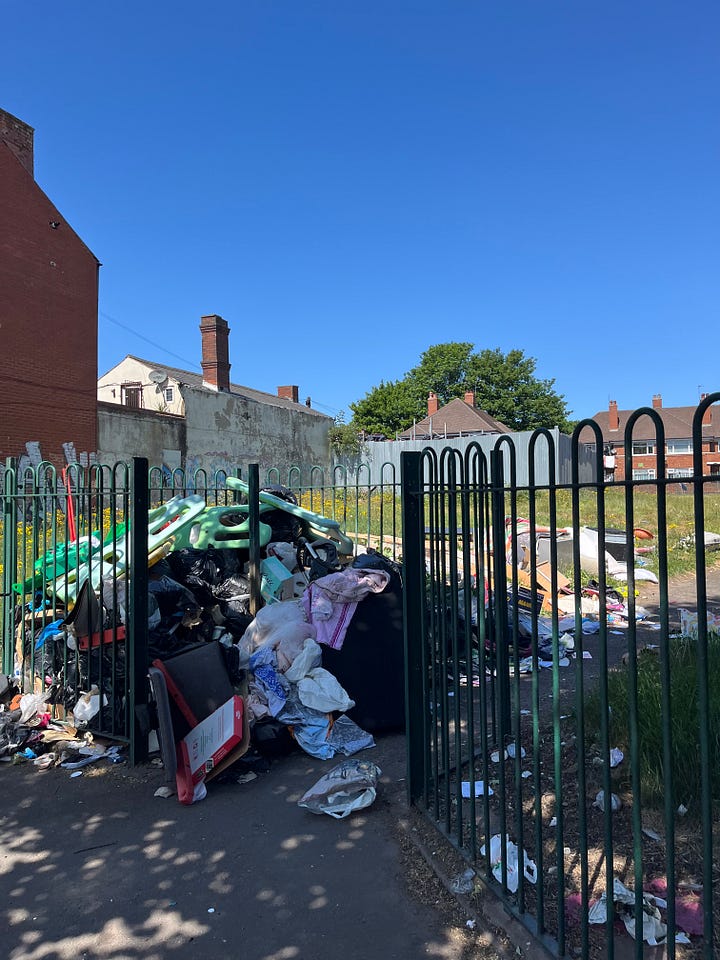
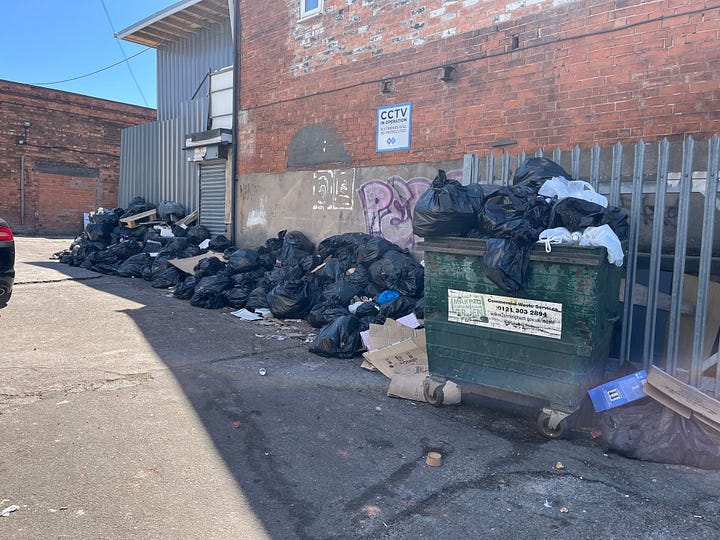
People across the West Midlands are worried about the long-term damage the bin strikes (which have been ongoing since March 11th after the council scrapped the middle-tier WRCO role) will do to the region's reputation. This is worsened by other pressing concerns like the opioid crisis raging through the city (Dispatch) and the recent early release of 1700 prisoners from HMP Birmingham, many of whom have gone straight back into a cycle of poverty and addiction (Vice).
This maelstrom of issues hitting Birmingham begs the question: what does the state of the UK's second-biggest city say about the state of the nation as a whole?
Despite the amazing regional diversity that exists across the British Isles, the UK today is heavily reliant on London. The capital drives tourism and produces almost a quarter of the country's GDP, while the massive productivity gap between London and Greater Manchester/Birmingham is unusual in a broader European context, far surpassing the gap between Paris and Lyon, or Amsterdam and Rotterdam. Economists like Torsten Bell have said that reducing this gap is crucial if the government is to boost economic growth.
But this is about far more than economics; the problems currently facing Birmingham reflect a much wider social and cultural depression being felt all over the UK. Austerity, falling living standards, and crumbling infrastructure have led to widespread discontent, and Labour's refusal to meaningfully address these issues has pushed people into the arms of right-wing populist party Reform UK. With Farage's party gaining ground in the West Midlands, a glance at our second city can tell us a lot about the country we're living in.
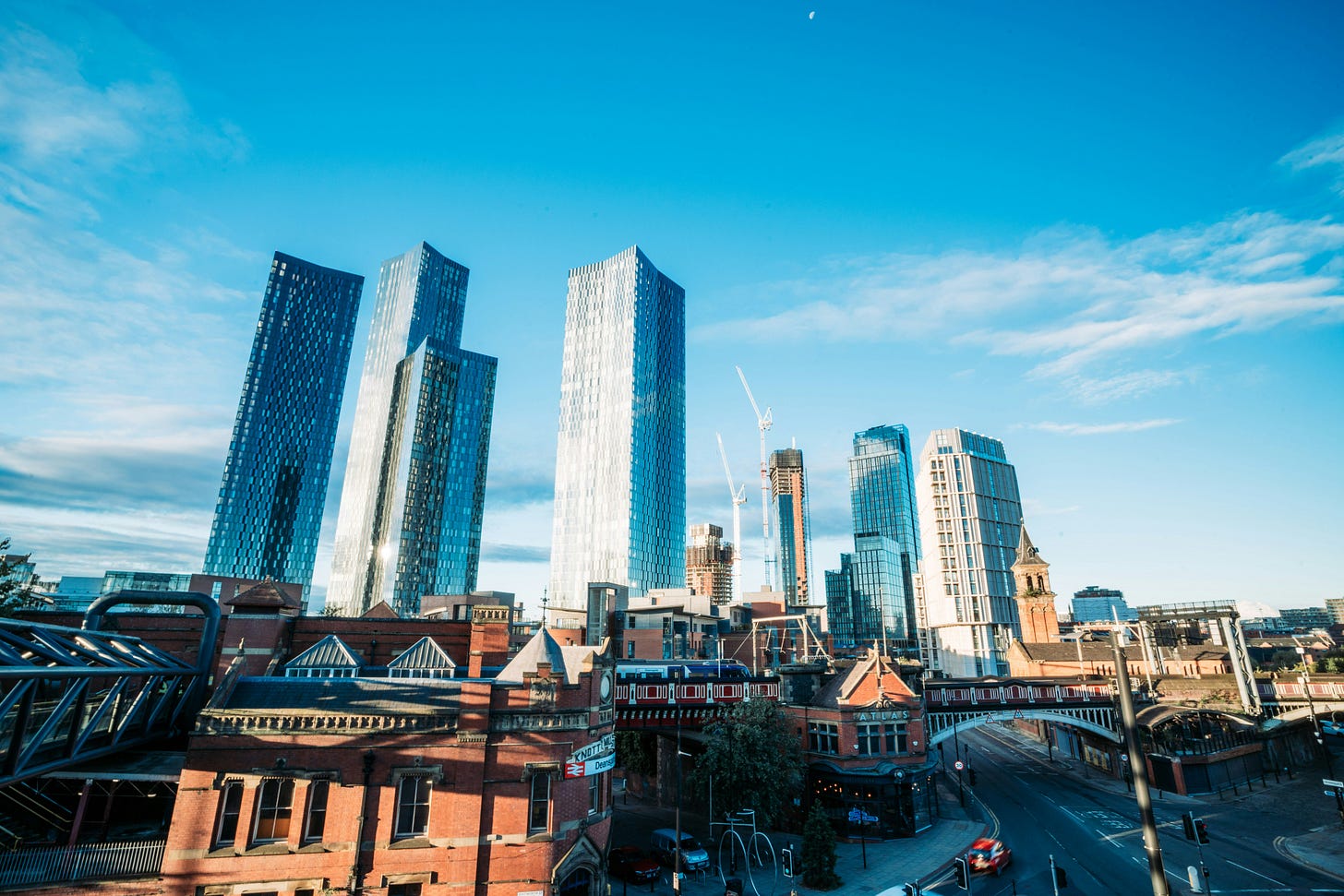
Historically, this has always been true. The title of 'second city' in England has often been up for debate — today, Manchester's cultural and economic regeneration over the last 20 years leaves it with a strong claim despite Birmingham being much larger than its Northern rival. But usually there's a frontrunner, a city that surges into secondary position depending on the priorities of the nation at the time.
In Roman Britain, York emerged as a crucial urban centre due to its prime location on the River Ouse and its proximity to pesky local tribes that the Romans needed to keep in check. In the medieval period, Norwich became the country's second most important city, spurred on by thriving wool and textiles trades and easy passage to the North Sea via the River Wensum (growing up in Norwich, this fact was drilled into me from a young age).
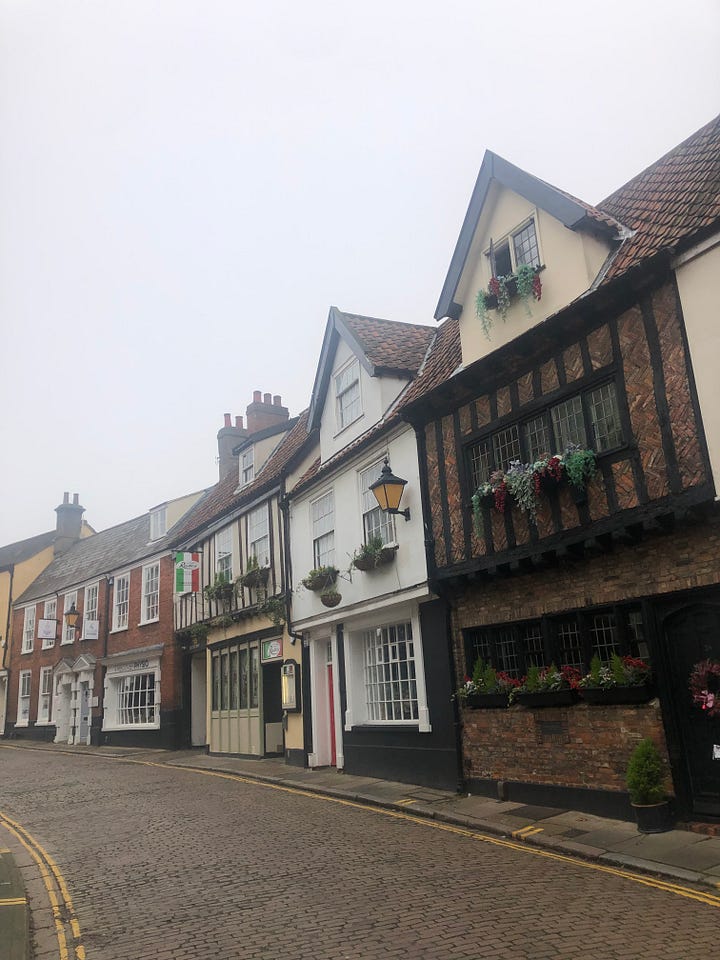
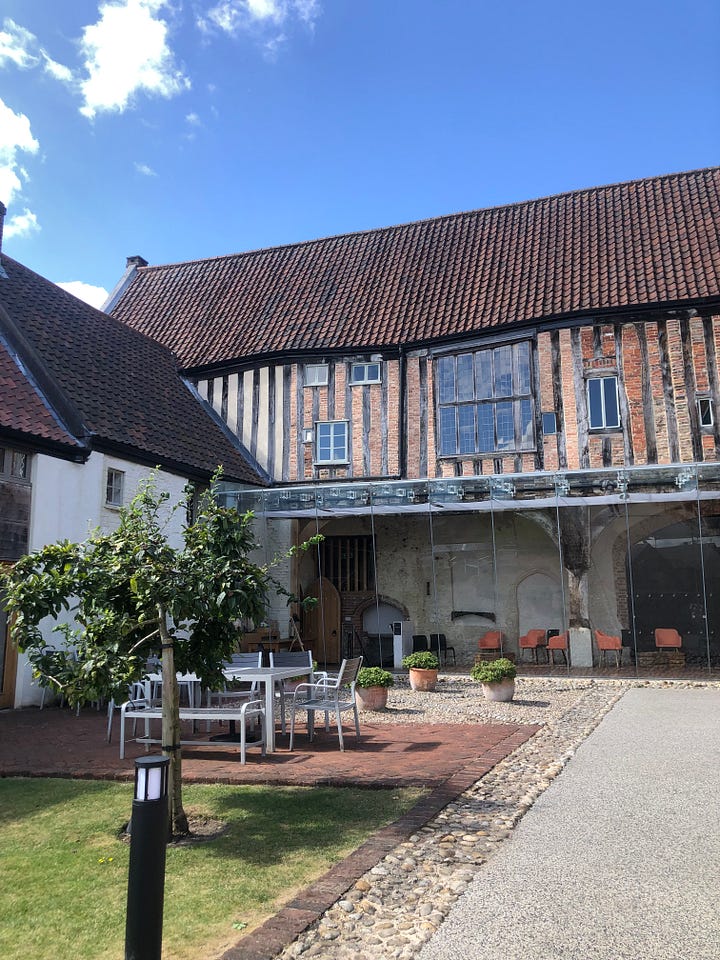
Later, in the 18th century, western port cities like Bristol and Liverpool became more dominant as Britain's imperial ambitions expanded, before the rapid industrialisation of Birmingham and Manchester in the 19th century ultimately brought these two metropolises into competition for the title of second city.
York, Norwich, Bristol, Liverpool, Manchester: whichever part of our history you look back on, the state of the nation is reflected in the shape of its second city. And right now, the issues facing Birmingham — local authority cuts, run-down high streets, acute poverty, and addiction — show the direction we're travelling in.
Starmer's Labour government has an opportunity to change course. His whopping majority means he could push through genuinely transformative legislation that would start addressing the downbeat climate across Britain. An end to the two-child benefit cap would lift 470,000 kids out of poverty, a 2% wealth tax could raise £24 billion per year to pump into crumbling public services, and proper investment in green energy could create hundreds of thousands of jobs (to name a handful of proposals). The UK’s wealth is heavily concentrated in London, and Birmingham isn’t the only place feeling the strain. But it doesn’t have to be that way.
Sadly, this government is reacting to Reform's rise by bashing minorities and lurching further to the right, rather than actually trying to address the issues that most voters care about. So while Birmingham may be an aberration now, at this rate, it's a good indication of where the country is heading.
Hit the button below to subscribe to Meanders, a free newsletter by Fred Garratt-Stanley exploring travel, culture, politics, and more.




You say labour are “bashing minorities”
I genuinely can’t see it, any examples of this from your perspective would be interesting. Unless it’s hefty hyperbole in which case ignore me lol, it’s always hard to tell an individuals flair for exaggeration.
"Green investments," more cash for the underclass and an annual incentive for the productive to move their wealth and themselves out of the country?
Interesting read, but maybe you should look around and see if anyone else has made hay with this kind of thing?